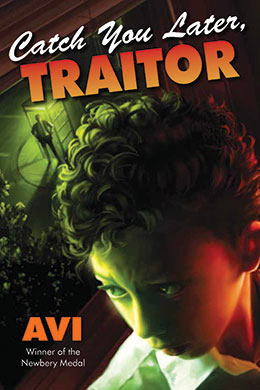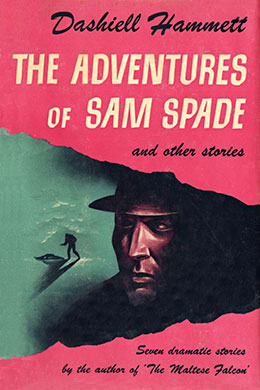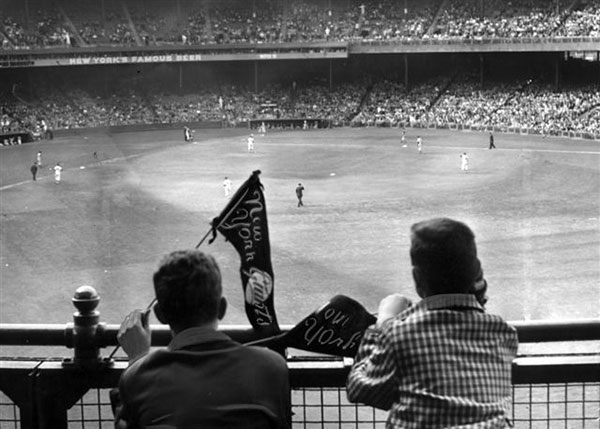 It was the hardest book I ever wrote.
It was the hardest book I ever wrote.
Mind, it was not the writing as such. It was because I was revisiting a world I recalled as full of fear, confusion, and danger.
I was fourteen years of age in 1951. Living in New York City (in Brooklyn) with my solid family. But this was the time of Senator Joe McCarthy, relentless anti-Communism, the Korean War, a constant fear of nuclear war, a time when you had to be careful what you said, and also careful about what you heard.
Indeed, the working title of the book was Season of Suspicion.
This was also the time when NYC had three baseball teams, the Brooklyn Dodgers, their arch-rivals the New York Giants and the New York Yankees. To live in Brooklyn meant you were a Dodger fan. An Obligation. A requirement. But 1951 was the time of my first major teen-rebellion. I became a Giant fan. Indeed the “Traitor,” in the title, Catch You Later, Traitor, is what Pete Collison is called (by best friend Kat) because of his change of baseball allegiance. And while the book is, in part, about that, it’s mostly about how Pete goes about trying to find the political truth about his parents—are they Reds?
 Because Pete is a fan of pulp fiction, detective stories, (as I was and remain) with a particular passion for Sam Spade, he decides to be a tough detective, see like a tough detective, talk like a tough detective, and go wherever the truth leads him—like a tough detective. What he discovers is not just shocking, but completely unexpected—as it has been for most readers.
Because Pete is a fan of pulp fiction, detective stories, (as I was and remain) with a particular passion for Sam Spade, he decides to be a tough detective, see like a tough detective, talk like a tough detective, and go wherever the truth leads him—like a tough detective. What he discovers is not just shocking, but completely unexpected—as it has been for most readers.
In the day—the 1950’s—I was taught that these subjects were not for public chatter. Taboo. Yet there I was writing a very public novel about all of this. Even though the story is a work of fiction—and Pete’s family was not my family—it all became very real to me, and therefore painful to write. As I have mentioned elsewhere, Paula Fox’s notion that “the writer’s job is to imagine the truth” didn’t apply here. I just remembered what those days were like.
The major aspect of the book that is based on something that did happen to me is that I worked for a blind man, whose name was Mr. Smith. My job was to visit him twice a week and read the newspaper to him. He also had a small coffee import business and I delivered that coffee. I learned about the job, and secured it because I was a Boy Scout, and such jobs were, from time to time, posted.
That said, my relationship with Mr. Smith was nothing like the relationship Pete had (in the book) with blind Mr. Ordson. But the metaphor of a blind person being Pete’s confidant, advisor, and friend, in this great time of crisis, was impossible to resist.

Of course, 1951 was a great time to become a Giants fan. That was the year the Giants came from fourteen games behind to beat the Dodgers in the most famous (Bobby Thompson homerun) playoff game ever played.
I will admit that the ending of the book is perhaps the most satisfying I have ever written. Because I remembered it.
2 thoughts on “Story Behind the Story #62: <br>Catch You Later, Traitor”
Thank yo, Avi. I so enjoy learning the behind the scene details of your books.
Interesting that it was the hardest for you to write, because CATCH YOU LATER, TRAITOR is my personal favorite of your books.